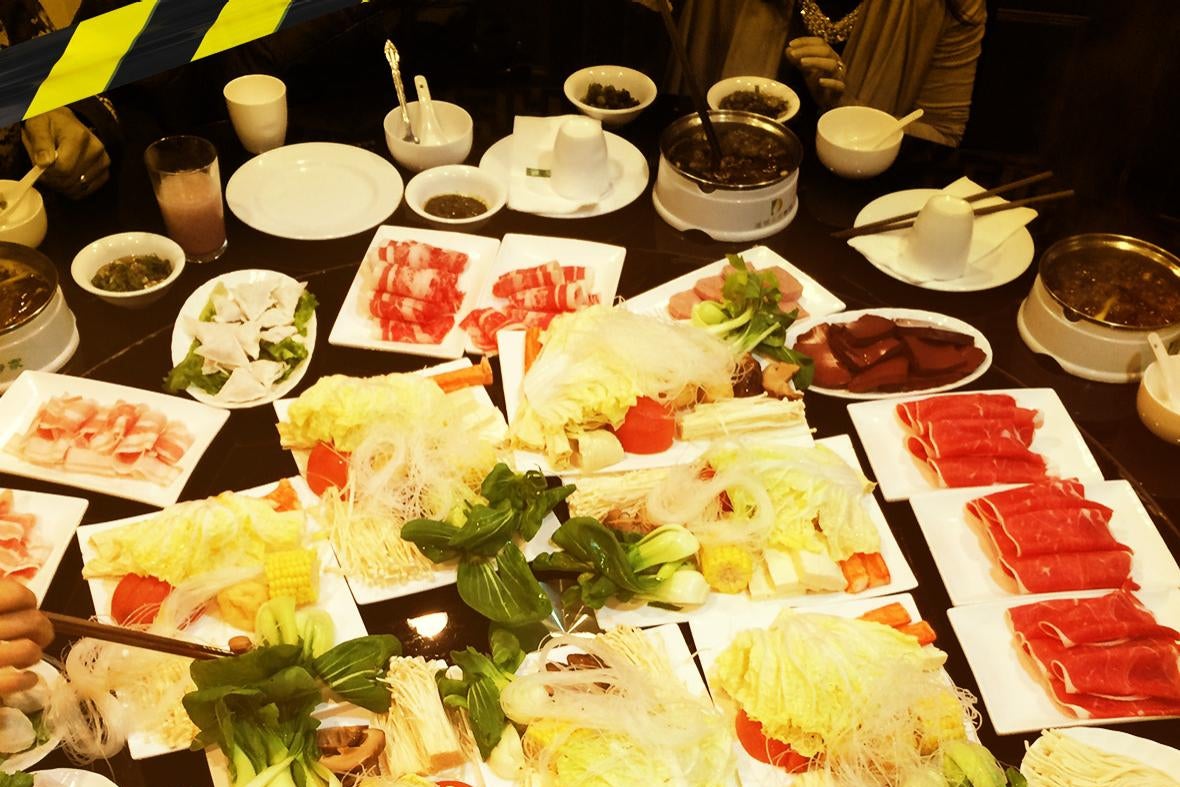It’s almost Christmas—that means if you’re Jewish, you might well be thinking about Chinese food.
That’s not a punch line! Eating Chinese food on Christmas is a sacred tradition for American Jews: As Marc Tracy wrote in Tablet magazine in 2010, “the Chinese-on-Christmas experience is a replacement for traditional rituals: A prayer you can eat,” and it also serves as a cultural reinforcement of one’s Jewishness this time of year. Noted Chinese food historian Jennifer 8. Lee has even gone so far as to argue that Chinese food is the ethnic cuisine of American Jews. Google searches for Chinese food spike around Christmas every year—and no other day during the year comes close. Shun Lee West, a beloved Chinese food restaurant on Manhattan’s Upper West Side (a known Jewish enclave), sees 1,300 reservations on Christmas Day.
But what to order? Even if you’re not celebrating Christmas, the not-celebrating demands its own festivity. Surely there has to be something that says “special occasion” better than the typical General Tso’s Chicken, crab rangoon, or egg rolls (the three most popular Chinese dishes in America, according to GrubHub). What’s the Chinese equivalent of a fancy and delicious Christmas dinner?
First, you need to know what kind of cuisine the establishment specializes in (Slate published a great primer distinguishing the various regional cuisines of China last year). You don’t necessarily want to order xiaolongbao or mapo tofu at a Cantonese place. Second, the waiter knows best: Ask for what’s fresh that day in terms of seafood and vegetables, and you can’t go wrong.
Want a meal fit for an emperor? Peking duck has been served to Chinese royalty since the 14th century, not to mention dignitaries like Henry Kissinger and Fidel Castro. To eat it, dip a piece or two of duck in hoisin sauce and fold it into a bun or pancake with some scallions—it’s OK to use your hands!
A whole fish is a symbol of luck and prosperity because the word for fish (yu) sounds like the word for abundance. It’s often served toward the end of the meal, with the head pointed at the guest of honor, who also has the privilege of eating the head—considered the most-prized, and most flavorful, part of the fish.
Instead of a deep-fried, filleted preparation, consider having the day’s freshest fish steamed whole: Many Chinese see a simple steaming as the best way to enjoy the freshness of seafood and meats like chicken. And you can get the most bang for your buck by ordering one item of seafood prepared in multiple ways, ensuring you wring out maximal deliciousness from each segment. One of my gustatory highlights this year was a huge nine-pound Alaskan king crab prepared three ways at Imperial Palace, a favorite Chinese seafood spot in Flushing, Queens. The body was steamed with sticky rice and scallions; the head (and the prized tomalley within) was steamed with egg into a light custard; and the legs were deep-fried with garlic and chilis. Larger fish can be transformed into two courses: a delicious broth using the head and tail, and a stir-fry with fresh Chinese vegetables.
Every Chinese birthday meal or celebratory banquet is capped off with noodles, which symbolize long life for the eater. Lo hon jai, also known as Buddha’s Delight, is a popular vegetarian Buddhist dish full of nutritious good-luck foods like wood ear, gingko nuts, black moss, and lily buds. If a big bowl of this auspicious mix seems too adventurous, you can go big with stir-fried lobster over noodles, or even a simpler chow mein. The most important thing is to avoid cutting any noodles, which is considered extremely unlucky (akin to cutting your life short).
Don’t want the hassle of having to sift through a menu? Grab a bunch of friends and head to hot pot restaurant. Yes, you are paying someone else for the opportunity to boil your own food. But few things are more satisfying on a biting December day than cooking an assortment of meats, seafood, and vegetables in a steaming pot of broth at your table. Many places offer individual pots, perfect for accommodating a myriad of dietary preferences. And what a deal! You can find an all-you-can-eat hot pot meal in New York for around $30. My personal favorite, Hou Yi, with locations in Chinatown and the Lower East Side, includes all-you-can-drink teas and sodas along with an ice cream bar to cap the meal.
Follow your meal with a nightcap of baijiu, China’s version of firewater that also happens to be the oldest spirit in the world. Pick up a bottle at your local Chinese liquor store or supermarket, or stop by the first bar dedicated to serving the 110-proof liquor in New York City. Toast to the conclusion of another Jewish Christmas—and to many more fabulous ones ahead.
